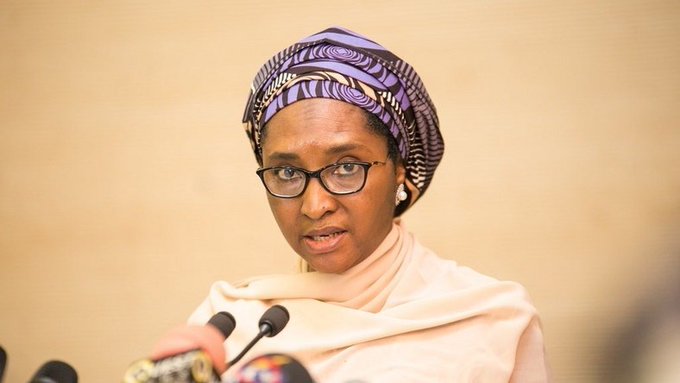
Federal Government on Thursday said it received with shock the report of an international rating agency, Moody’s Investors Service, which downgraded nine Nigerian banks following its downward review of the country’s rating last week.
It said despite presenting evidence of its efforts to stabilise the economy, Moody’s report did not reflect a proper understanding of the domestic economy.
Read Also: CBN Mandates Banks To Commence Payment Of New Naira Notes Over The Counter
Minister of Finance, Budget and National Planning, Zainab Ahmed, argued at the 65th session of the State House Ministerial Briefing organised by the Presidential Communications Team at the Aso Rock Villa, Abuja.
She noted;
It came as a surprise to us because we have presented all of the work that we’ve been doing to stabilise the economy. But these are external rating agencies that don’t have the full understanding of what is happening in our domestic environment.
In an earlier statement, Moody’s Investors Service downgraded nine Nigerian banks. The downgraded banks include Access Bank Plc, Fidelity Bank Plc, First City Monument Bank Limited, First Bank of Nigeria Limited, Guaranty Trust Bank Limited, Sterling Bank Plc., Union Bank of Nigeria Plc., United Bank for Africa Plc. and Zenith Bank Plc.
According to the statement, the rating agency also downgraded to Caa1 from B3 the long-term deposit ratings and issuer ratings, as well as the senior unsecured debt ratings (where applicable), of all the nine lenders.
Giving reasons for the downgrades, Moody’s added;
Rated Nigerian banks have significant direct and indirect exposure to the Nigerian sovereign, with a significant portion of their assets located in the country and sovereign debt holdings representing 28 per cent of their aggregate total assets as of June 2022.
Government exposure links the banks’ credit profiles with the sovereign’s, whose rating was downgraded on January 27 2023, to reflect Moody’s expectation that the government’s fiscal and debt position will continue to deteriorate.
Today’s rating actions follow Moody’s downgrade on January 27, 2023 of the long-term issuer rating of the Government of Nigeria to Caa1 from B3, and change in the outlook to stable.
Consequently, Nigeria’s government bonds suffered their fastest dump in three months on Monday.
Based on data from JPMorgan Chase & Co., the extra yield investors demand to hold Nigeria’s dollar debt instead of treasuries rose by 49 basis points to stand at 780.
Before Moody’s downgrade, Nigeria’s bonds outpaced other African and emerging market issuers in the last six months.
Read Also: TUC Promises To Resist FG’ Plan To Ban Aviation Workers From Industrial Action
Although the FG acknowledged the factors that influenced the downgrade, it said Moody’s
The Finance Minister said;
The Moody’s report downgrade came as a surprise to us because we have presented all of the work that we’ve been doing to stabilise the economy.
But these are external rating agencies that don’t have the full understanding of what is happening in our domestic environment.
The reasons they gave also are very practical ones. They said even though oil production has been restored that, there is still a chance, a higher risk that there could be a relapse to the production levels.
Second, they also said that they are concerned that our debt service to revenue ratio is high. And even though their assessment is that we’ve been able to pay off our debts in the medium term, they have confirmed that we have the capacity to pay our debt, but that it is eating too much of our revenue and they flagged that as a high risk.
She said Moody’s inferred that Nigeria’s foreign exchange management is still problematic, as industries operating in the country cannot get the foreign exchange requirements to meet the business needs.
Ahmed said the FG looks forward to the S&P global report to be released on Friday.
She explained;
So these are practical things. We explained to them what we’re working on to address each of these three pockets of major challenges they reported.
But at the same time, we’re also going through a rating review by S&P Global. So yesterday, S&P Global sent us a notice of what they will release; S&P’s assessment is not the same as the assessment of Moody’s.
They have come out with a much better assessment to argue. They are global rating agencies, they have different views and different operations. S&P’s rating will be released tomorrow (Friday). It is a much better one than the Moody’s.
